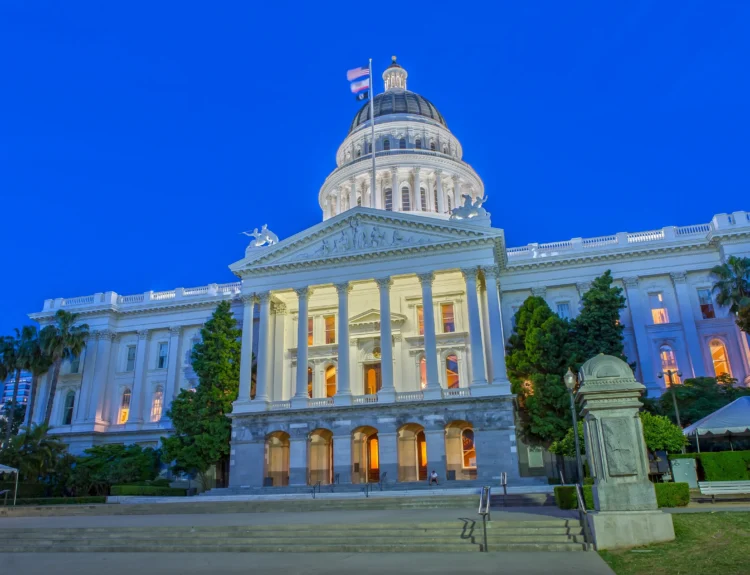As of the writing of this Article, and as a result of COVID-19, we have seen a really interesting development, especially in California and Massachusetts, whereby individual towns, cities, or counties, despite state laws, are imposing moratoriums or restrictions on self-storage lien sales and, in some instances, self-storage late fees. This is a remarkable and somewhat frightening development. Cities and towns are telling storage operators, despite the fact that you have a state law providing sometimes your only remedy to resolve a nonpayment of rent, that you are no longer going to be allowed to perform lien sales or charge late or other fees for an extended period of time, for the expenses and losses you incur, as a result of that nonpayment of rent. I am sensitive to the harsh realities of the COVID-19 crisis and I understand some people really cannot pay the rent, but in reality operators have to be able to get their units back, so they can survive too. Most operators have no desire to conduct a lien sale on anyone who is seriously suffering from a case of or from a layoff due to COVID-19, however, self-storage has been separated into its own separate category. That is, while State or Federal law may have barred residential evictions to protect the economy for a period of time, cities are saying if people’s extra personal property stored in a self-storage unit were to be sold, that it would harm the economy and is somehow not fair to the tenants and if tenants do not pay their rent, storage owners should be left holding their property for no money.
The potential consequences of these actions left unchecked is scary. The industry has spent years and untold millions of dollars to obtain state statutes defining how and when a sale can occur and codifying reasonable late fees, only to have cities take away these rights. These legislative efforts in various states has been important, because a sale often is the only remedy a storage owner has, when someone does not pay to get the unit back. Now, local and city councils have taken matters into their own hands. Should this spread, this could represent a substantial paradigm shift for the industry. What happens with every future crisis, if cities can, for an extended time, take away your limited right to a lien sale? What happens when people abandon their goods, stop paying, and do not tell you? What happens when people realize that because of changes in laws they are no longer compelled to pay and therefore choose not to pay anymore, while gaming the system to get free storage? These are developments that should concern every operator in every state. It is actually interesting to note, the basis for one of these ordinances, specifically the City of Los Angeles, was based upon an article written and published in Inside Self Storage magazine. While the words of the article were taken out of context, I hope those same people are reading this article.
First, a bold suggestion, if cities and counties want to prevent lien sales, they should offer rent assistance to self-storage operators, just like they are offering to people to stay in their homes. If it is so detrimental to the well-being of the citizens of the city or town that they not lose their extra personal property in storage, then cities should come up with a solution to the problem, other than just outright bans to lien sales.
In self-storage, when you do not pay your storage rent, we foreclose on the one asset we have, which is the contents of the unit. When the operator sells, the main reason is to get the space back, to rent it to someone who is willing to pay, and I would suggest the majority of the industry does not even turn these small deficiencies over to collection. There are other solutions. For example, what if these cities or towns legislated that an owner could not sell the goods in default if the tenant were willing to come and pick them up within Forty Eight
(48) hours of a notice from the storage operator of a sale or disposal because of a default? Many of you may not like this idea because you want the money, but if you had the option to
remove the tenants within a short period of time, in lieu of lien sale, many of you on reflection and/or facing the idea that lien sales themselves would be completely banned, might accept something like this.
While there is a Constitutional argument to be made here, based on equal protection under the Constitution, this will take time. Additionally, the industry fortunately has the argument that there are state laws already in place, which substantially regulate our industry. That is, in almost every state, there is some amount of right to notice of the default and, every state that has a statute allows for the ultimate remedy of the tenant to pay what is owed, up until the moment of sale, and save their personal property. This is called the right of redemption. Likewise, most states, thanks to a very strong legislative effort, between the national and state self-storage associations have defined reasonable late fees now, which allow for the argument that the cities cannot override the state law, allowing for a lien sale or allowing for the imposition of a late fee. However, and unfortunately, these things will have to be battled our in courts, rather than on a more sensible playing field.
For the moment, pay attention to your local, town, and city council ordinances that they are considering right now. Remind them, that self-storage is a family owned business and that you cannot afford to remain open if they take away your only remedy and the only enforcement tool you have for payment of rent. The city certainly couldn’t exist without tax revenues, you cannot exist without rent and reasonable fees and charges. While I expect the larger operators will take these issues to court, keep an eye open in this space for future updates, and let us know if you hear any grumblings or rumblings of ordinances in your town on proposed legislation.




Thank you for this very valuable update. It sure does put the owner/operator/management in a corner. I appreciate your openness and willingness to keep us informed.
Comments are closed.